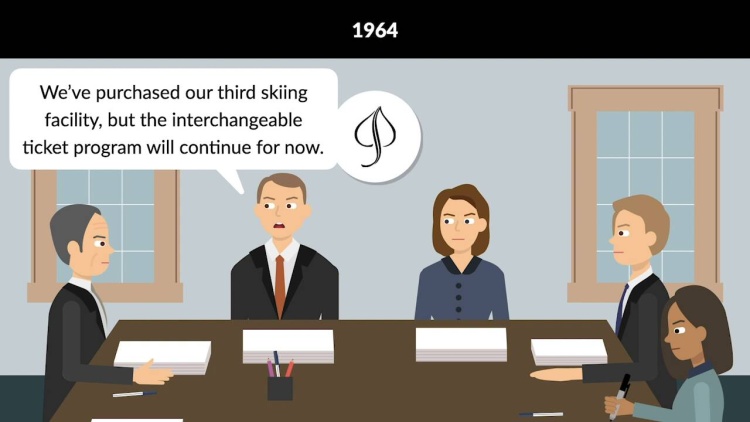Aspen Skiing Co. v. Aspen Highlands Skiing Corp.
United States Supreme Court
472 U.S. 585, 105 S. Ct. 2847, 86 L. Ed. 2d 467 (1985)
- Written by Angela Patrick, JD
Facts
There were four major mountains in Aspen, Colorado. The mountains’ owners began offering an interchangeable ski-lift ticket that could be used at each of the four mountains. The ticket-sale proceeds were distributed based on how much the ticketholders actually used each mountain. Aspen Skiing Company (Ski Co.) (defendant) owned two of the four mountains. Two years later, Ski Co. purchased another one of the mountains, which meant it owned three of the four mountains in the Aspen area. Aspen Highlands Skiing Corporation (Highland) (plaintiff) owned the fourth mountain and was the only remaining competitor in the market for Aspen skiers. The mountains continued to offer the interchangeable ticket. Several years later, Ski Co. suggested changing the proceed payments to give Highland a fixed percentage of the revenue from interchangeable tickets that was substantially below the revenue typically received by Highland based on actual usage. Highland rejected the offer. Ski Co. then discontinued the interchangeable-ticket program and established a new program that allowed skiers to purchase an interchangeable pass for Ski Co.’s mountains but not for Highland’s mountain. Highland’s market share for skiing in the Aspen area declined dramatically. Highland sued Ski Co. in federal district court, alleging that Ski Co. had violated § 2 of the Sherman Act by monopolizing skiing in the Aspen area. Ski Co. argued that Highland offered an inferior product and that Ski Co.’s refusal to include Highland in the all-mountain pass was an attempt to disassociate from an inferior product rather than anticompetitive conduct. At trial, numerous witnesses contested Ski Co.’s claim of Highland’s inferiority, and Ski Co. admitted to its willingness to associate with inferior products in other markets. A jury found Ski Co. guilty. The United States Court of Appeals for the Tenth Circuit affirmed the decision. The United States Supreme Court granted certiorari.
Rule of Law
Issue
Holding and Reasoning (Stevens, J.)
What to do next…
Here's why 907,000 law students have relied on our case briefs:
- Written by law professors and practitioners, not other law students. 47,100 briefs, keyed to 996 casebooks. Top-notch customer support.
- The right amount of information, includes the facts, issues, rule of law, holding and reasoning, and any concurrences and dissents.
- Access in your classes, works on your mobile and tablet. Massive library of related video lessons and high quality multiple-choice questions.
- Easy to use, uniform format for every case brief. Written in plain English, not in legalese. Our briefs summarize and simplify; they don’t just repeat the court’s language.





